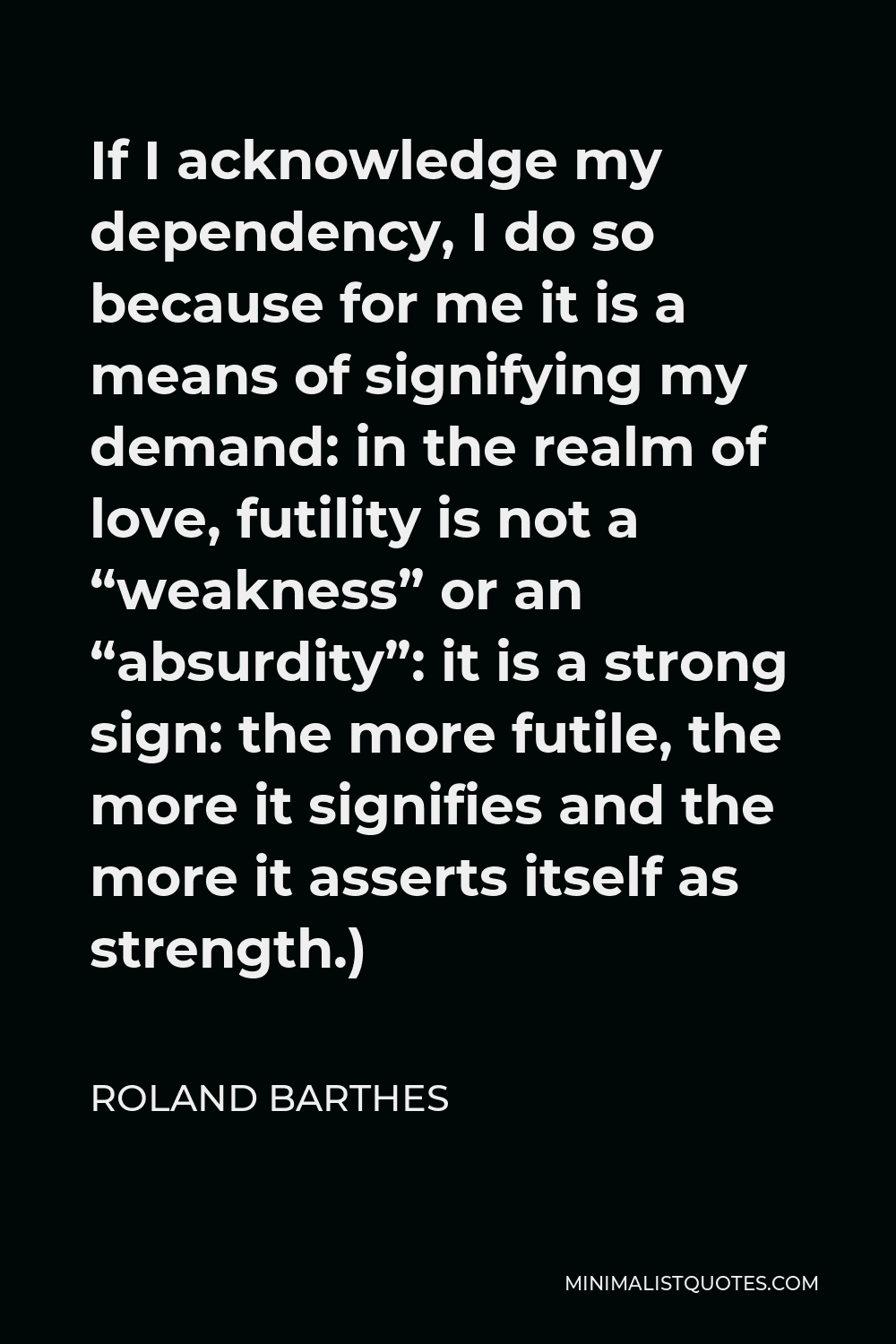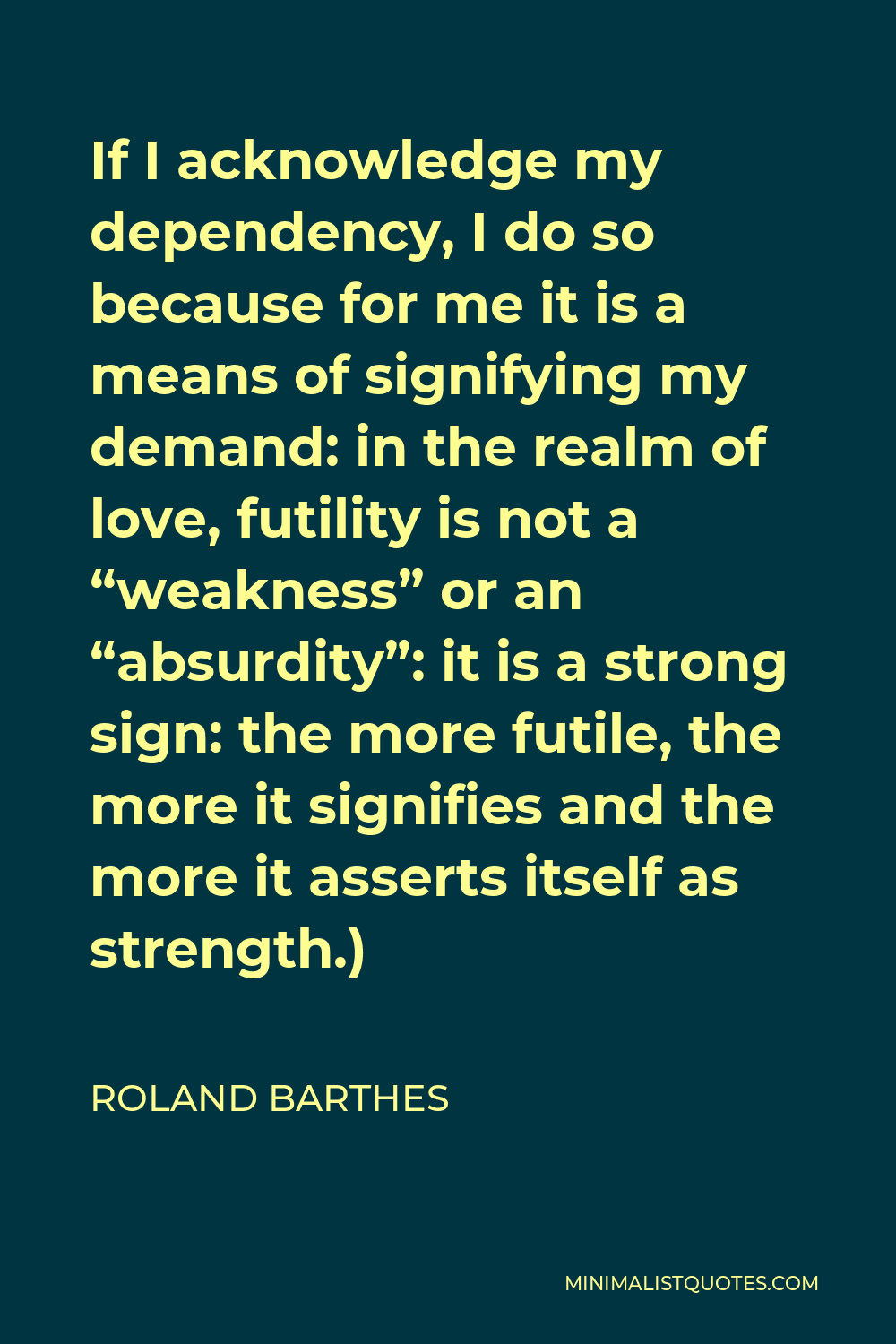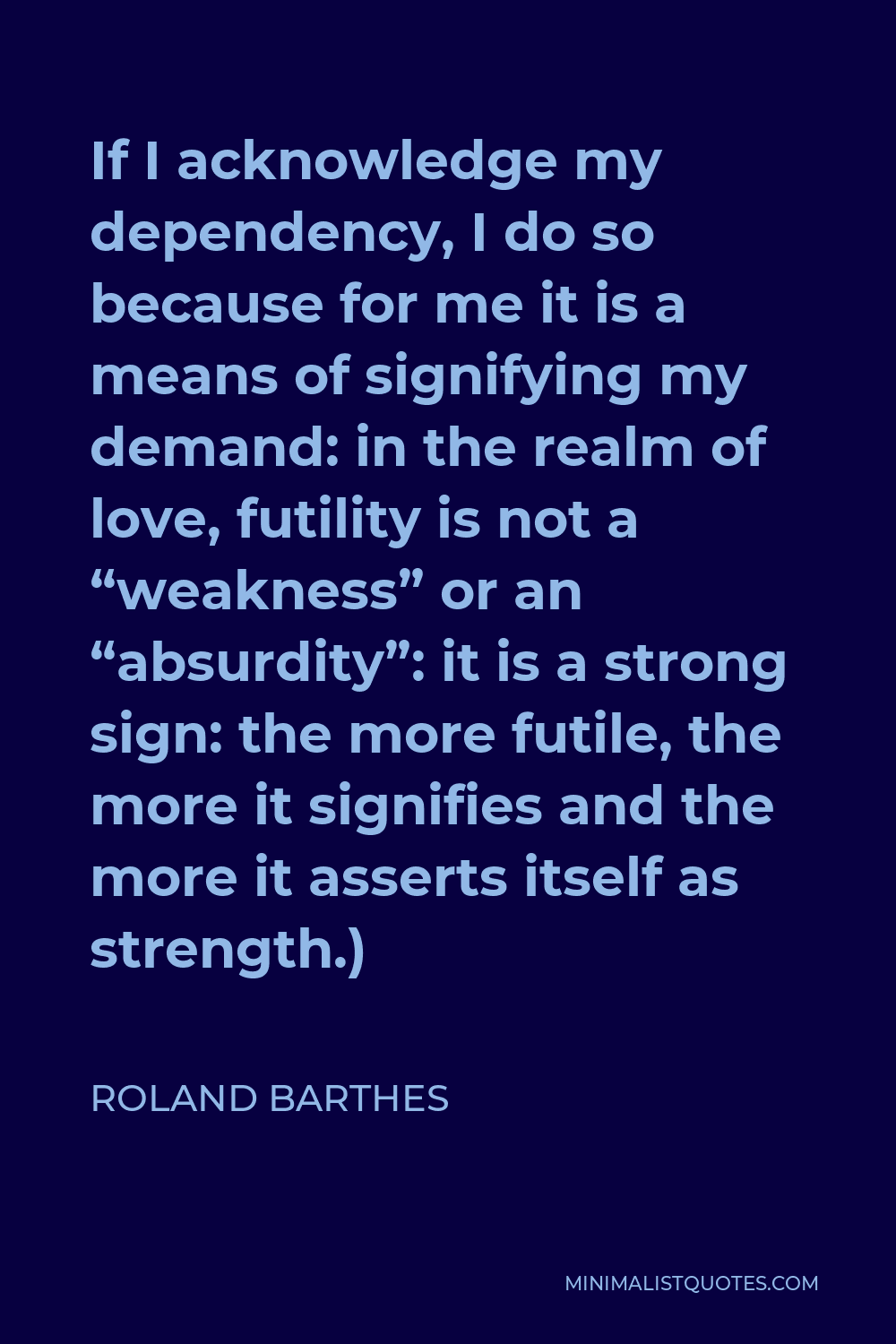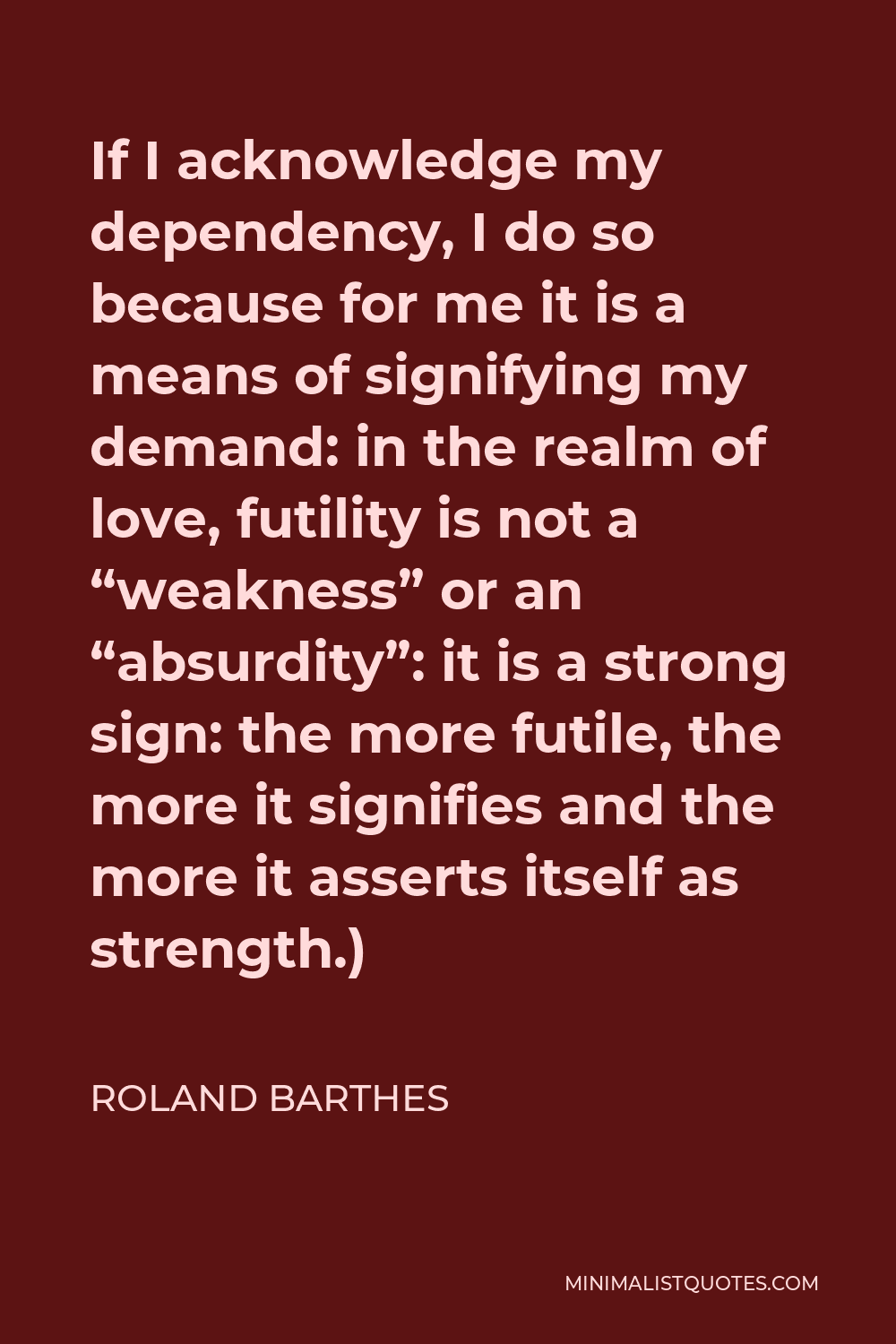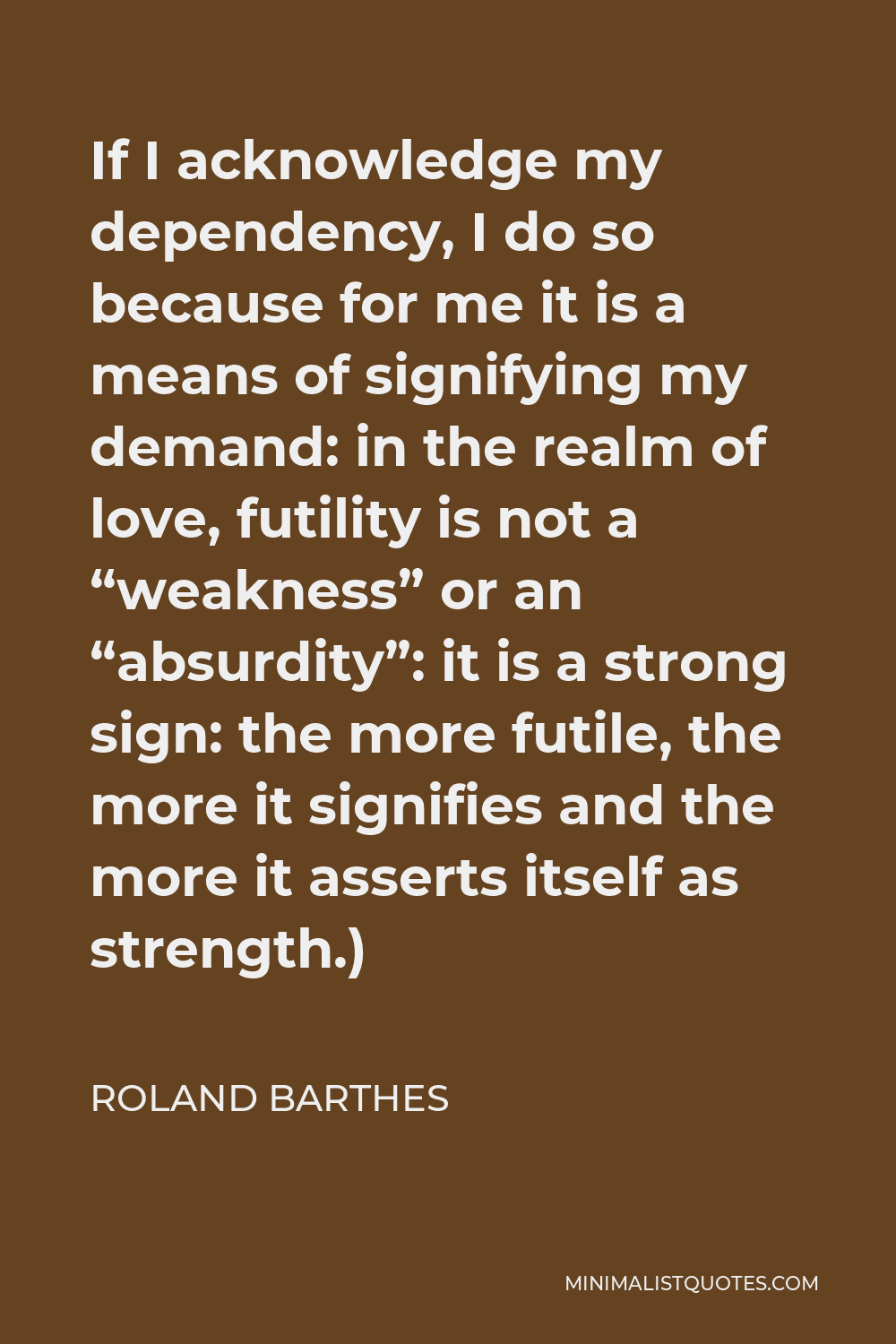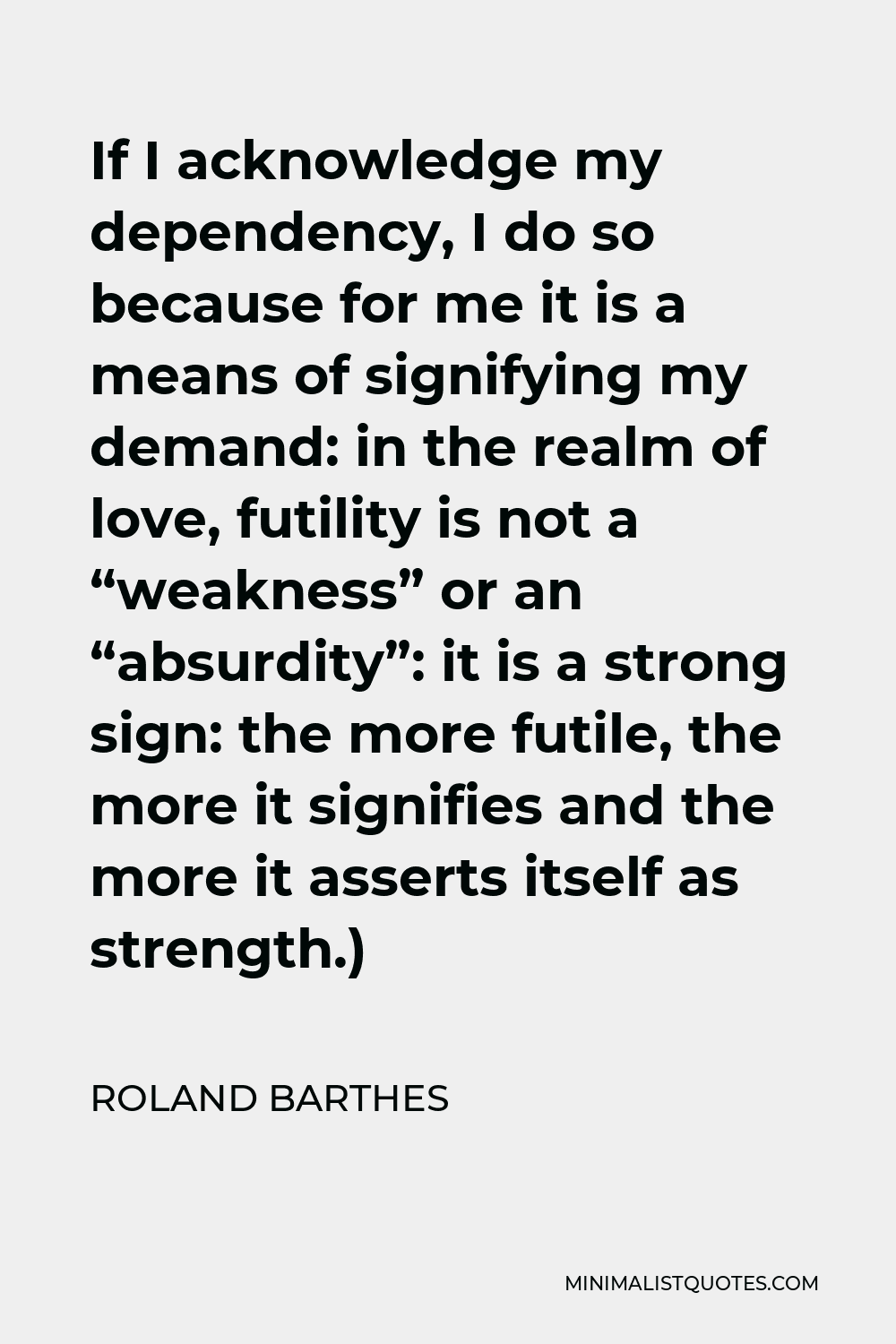We can never know, for the good reason that writing is the destruction of every voice, every origin. Writing is that neuter, that composite, that obliquity into which our subject flees, the black-and-white where all identity is lost, beginning with the very identity of the body that writes.
ROLAND BARTHESIf I acknowledge my dependency, I do so because for me it is a means of signifying my demand: in the realm of love, futility is not a “weakness” or an “absurdity”: it is a strong sign: the more futile, the more it signifies and the more it asserts itself as strength.)
More Roland Barthes Quotes
-





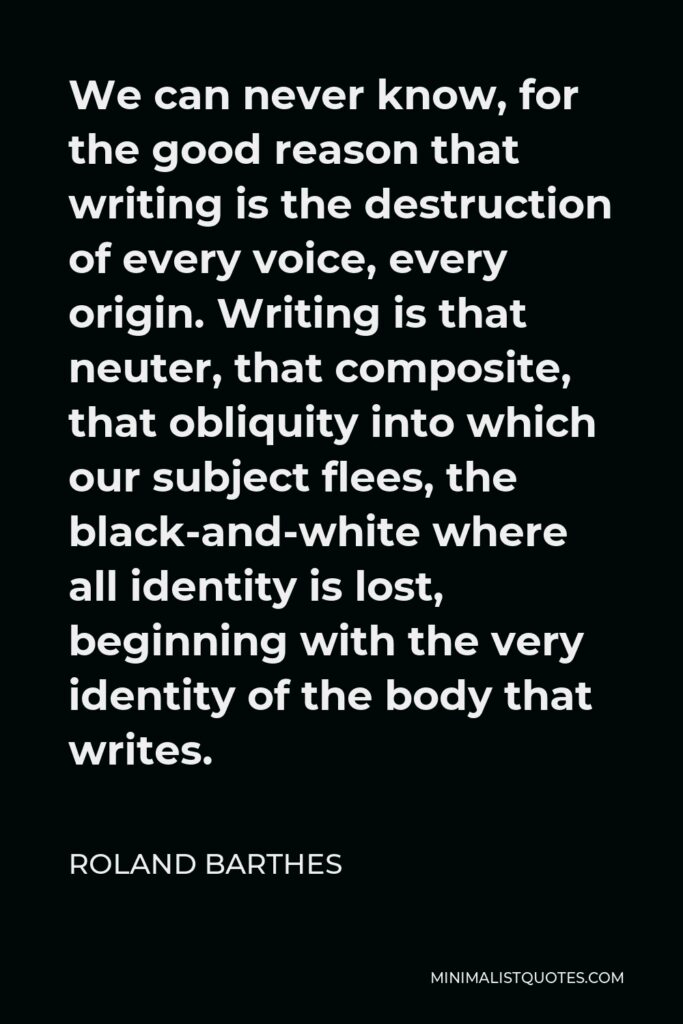

-







Architecture is always dream and function, expression of a utopia and instrument of a convenience.
ROLAND BARTHES -





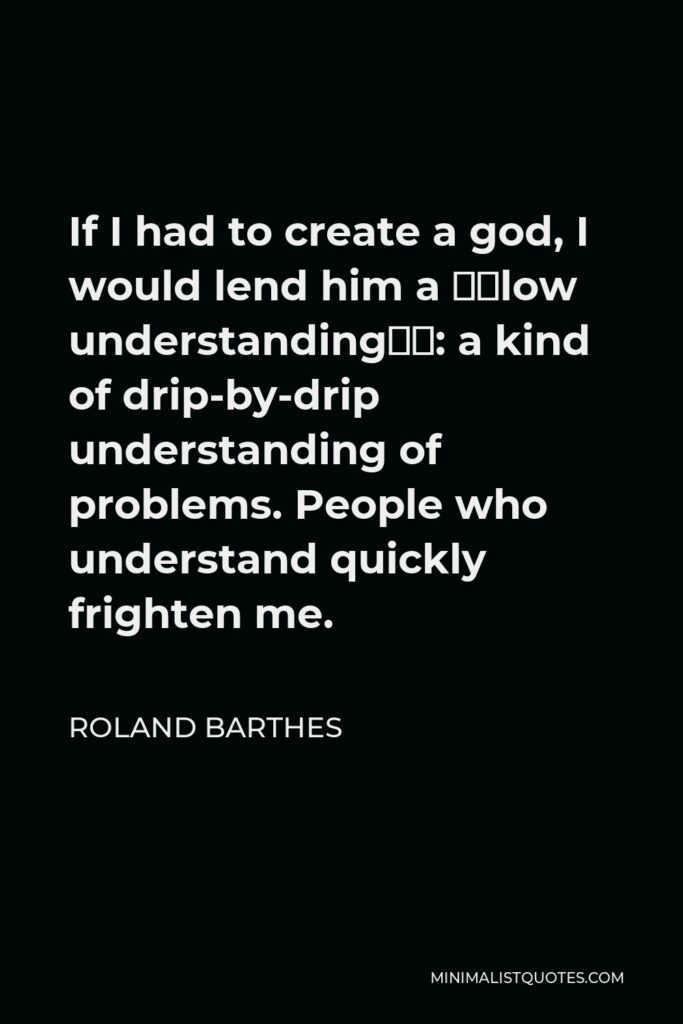

If I had to create a god, I would lend him a “slow understanding”: a kind of drip-by-drip understanding of problems. People who understand quickly frighten me.
ROLAND BARTHES -







Television doomed us to the Family, whose household instrument it has become-what the hearth used to be, flanked by the communal kettle.
ROLAND BARTHES -





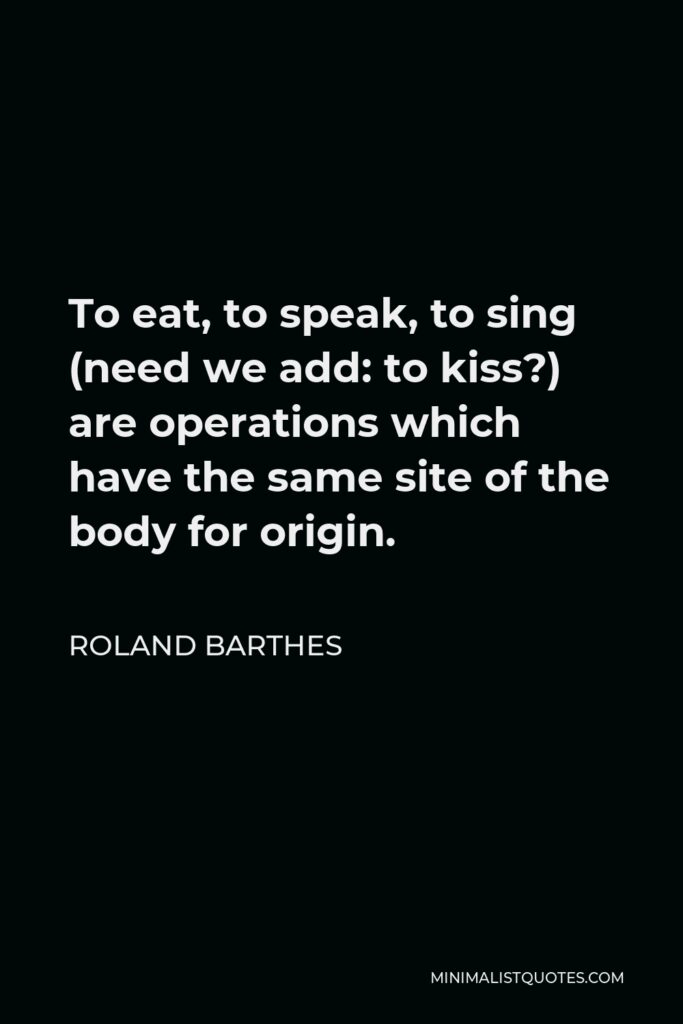

To eat, to speak, to sing (need we add: to kiss?) are operations which have the same site of the body for origin.
ROLAND BARTHES -





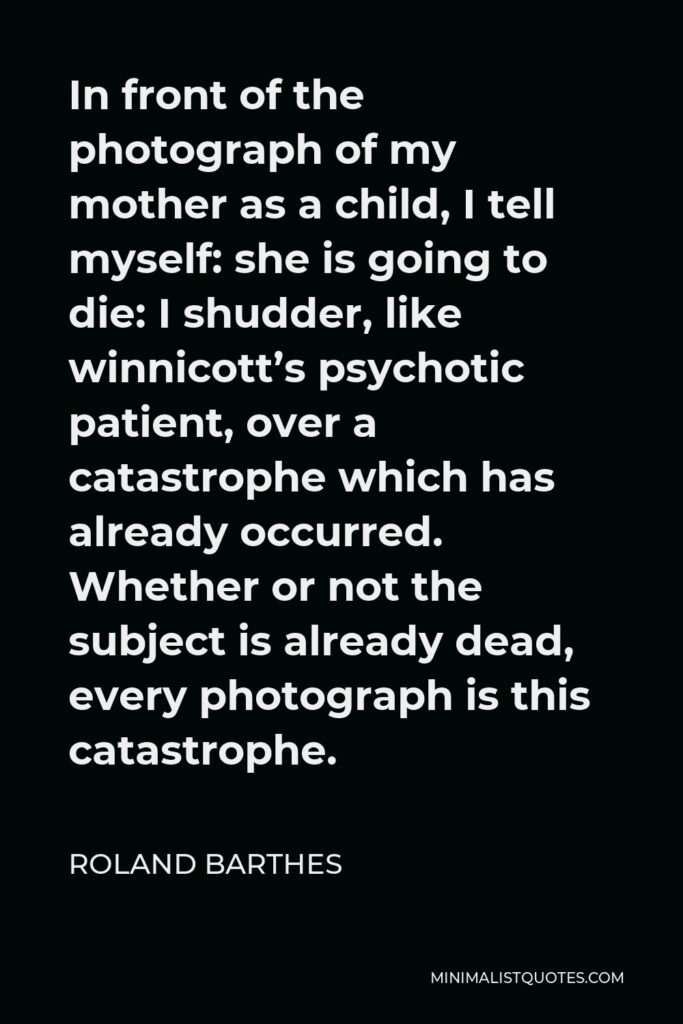

In front of the photograph of my mother as a child, I tell myself: she is going to die: I shudder, like winnicott’s psychotic patient, over a catastrophe which has already occurred. Whether or not the subject is already dead, every photograph is this catastrophe.
ROLAND BARTHES -







Painting can feign reality without having seen it.
ROLAND BARTHES -





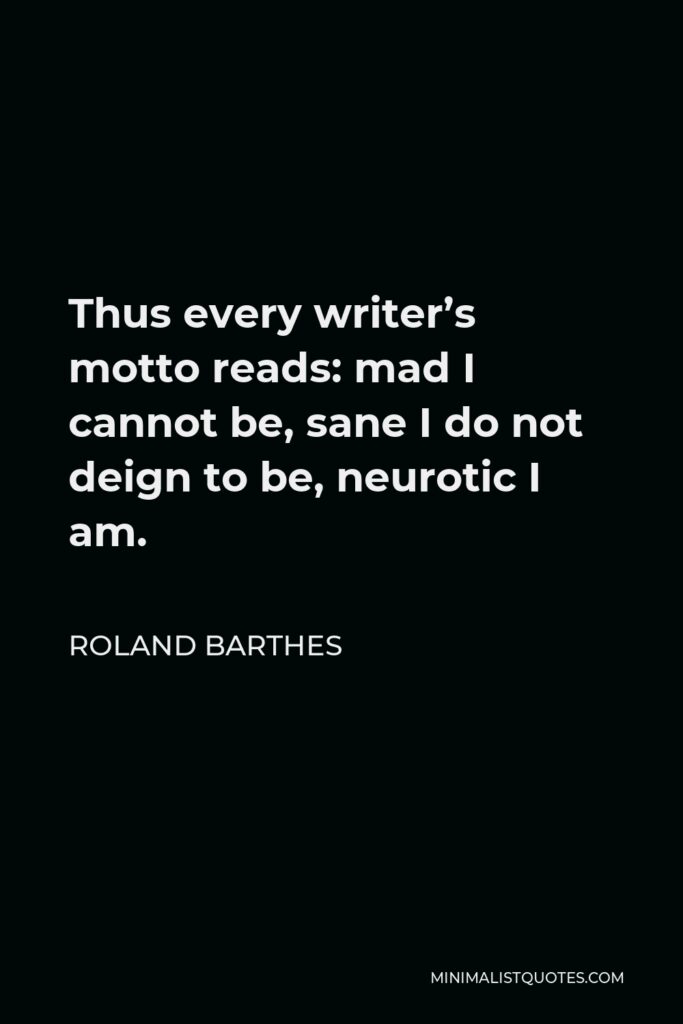

Thus every writer’s motto reads: mad I cannot be, sane I do not deign to be, neurotic I am.
ROLAND BARTHES -







The author enters into his own death, writing begins.
ROLAND BARTHES -





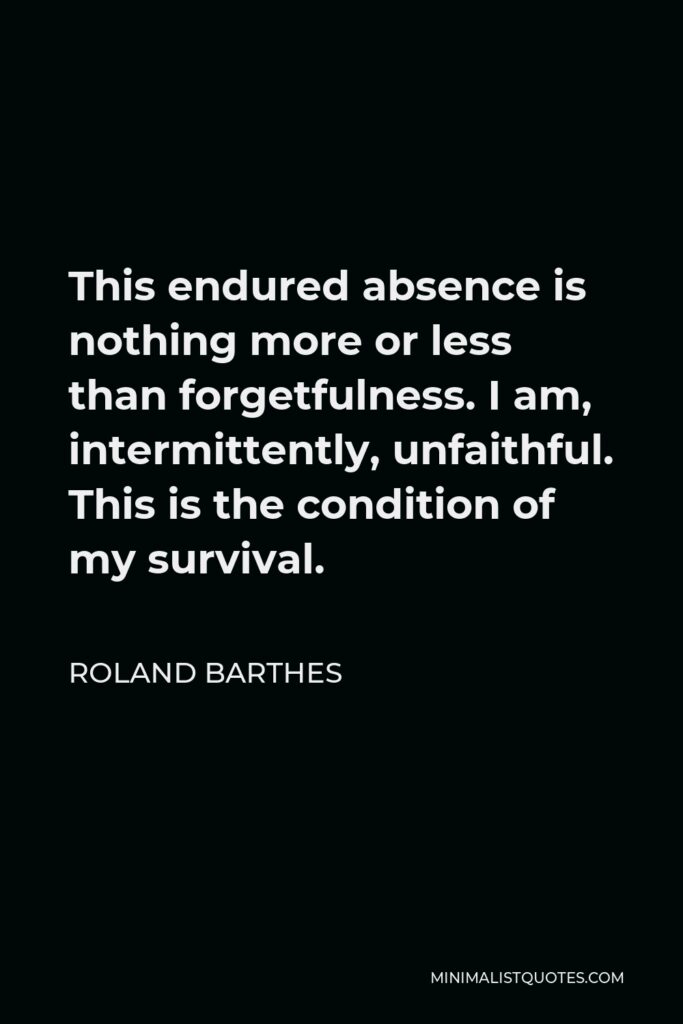

This endured absence is nothing more or less than forgetfulness. I am, intermittently, unfaithful. This is the condition of my survival.
ROLAND BARTHES -





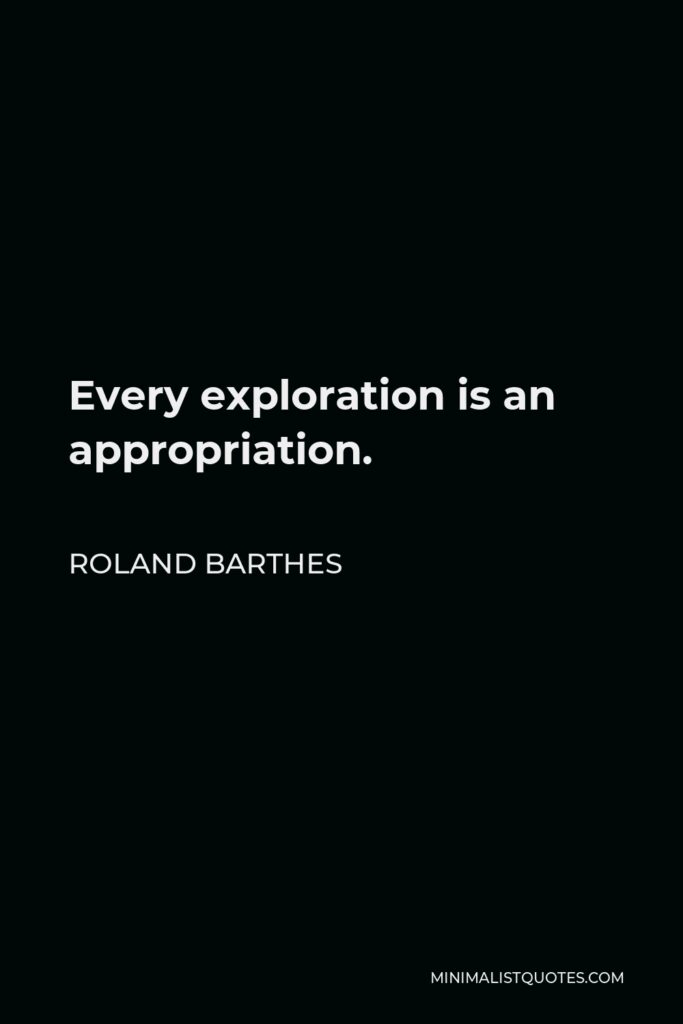

Every exploration is an appropriation.
ROLAND BARTHES -





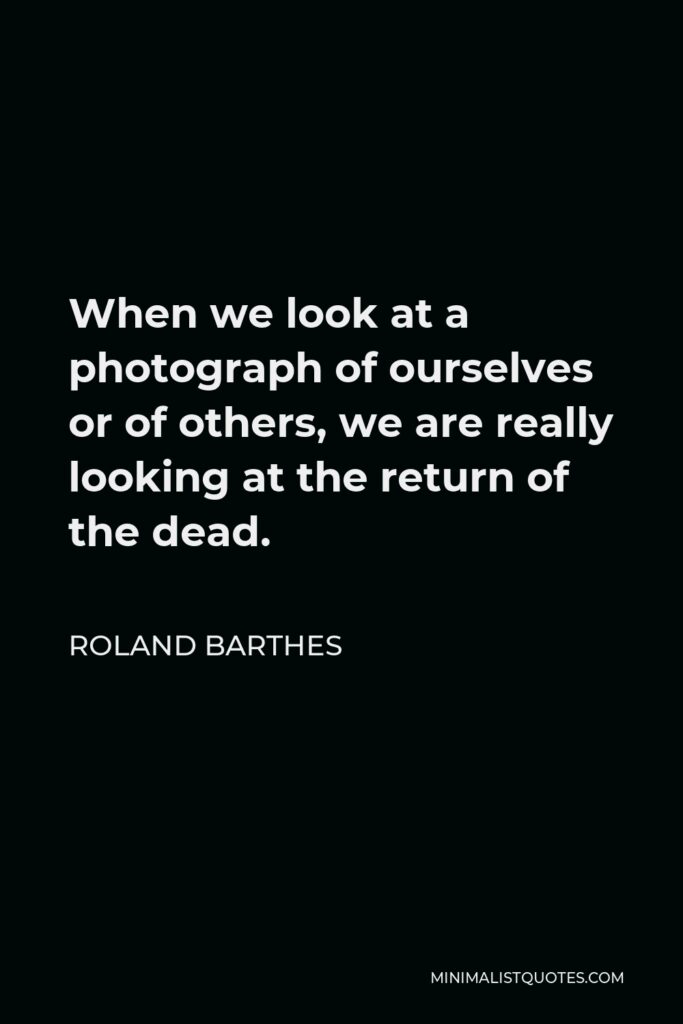

When we look at a photograph of ourselves or of others, we are really looking at the return of the dead.
ROLAND BARTHES -







To eat steak rare represents both a nature and a morality.
ROLAND BARTHES -





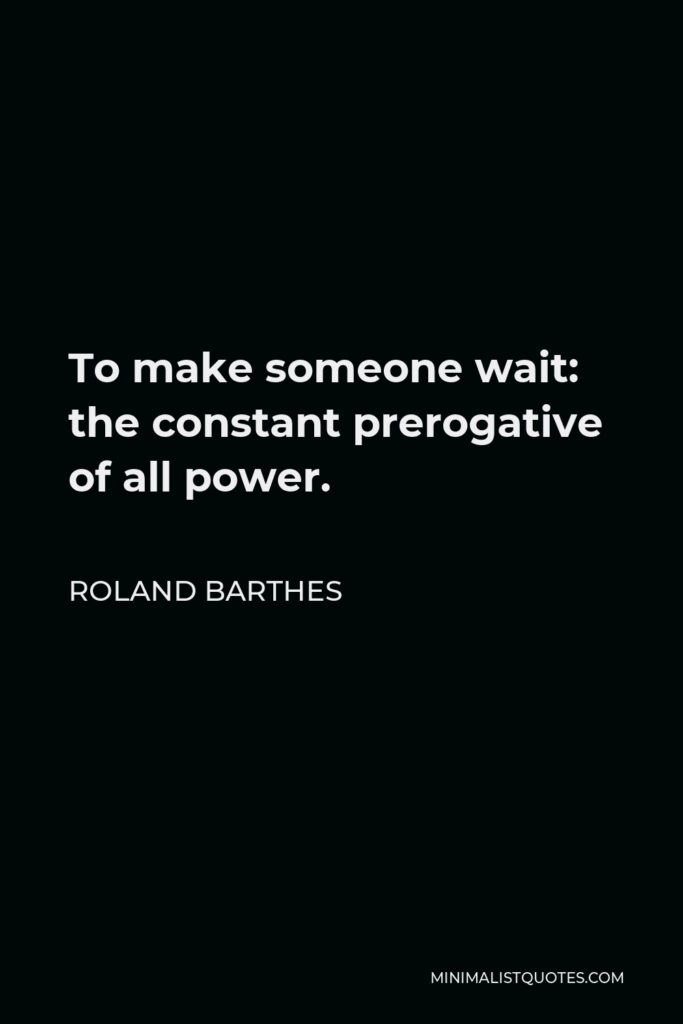

To make someone wait: the constant prerogative of all power.
ROLAND BARTHES -







Who speaks is not who writes, and who writes is not who is.
ROLAND BARTHES -





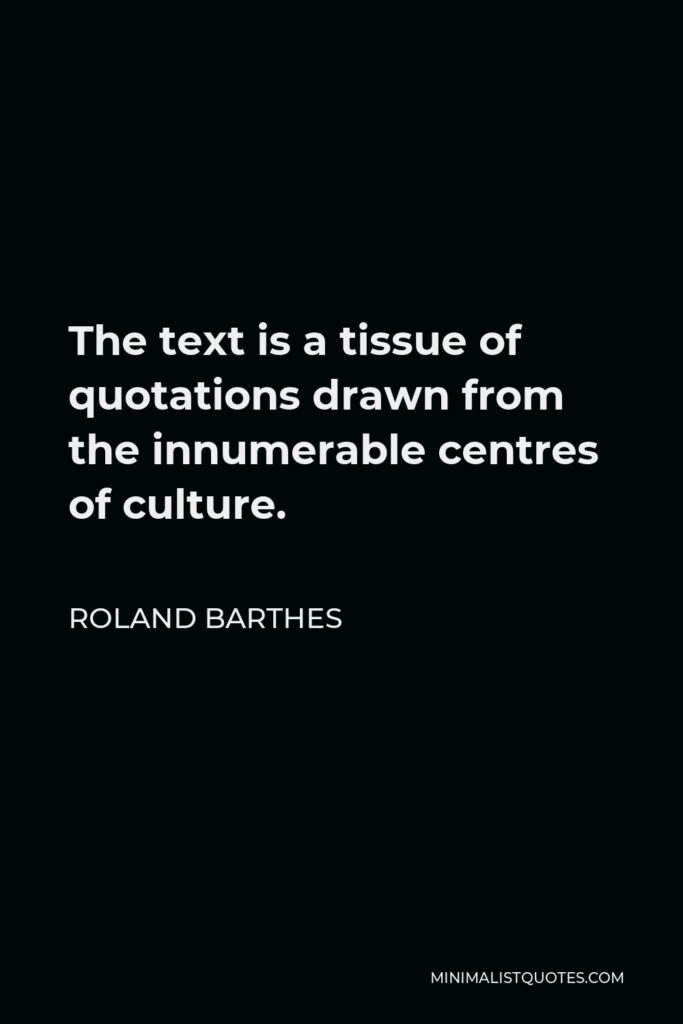

The text is a tissue of quotations drawn from the innumerable centres of culture.
ROLAND BARTHES
